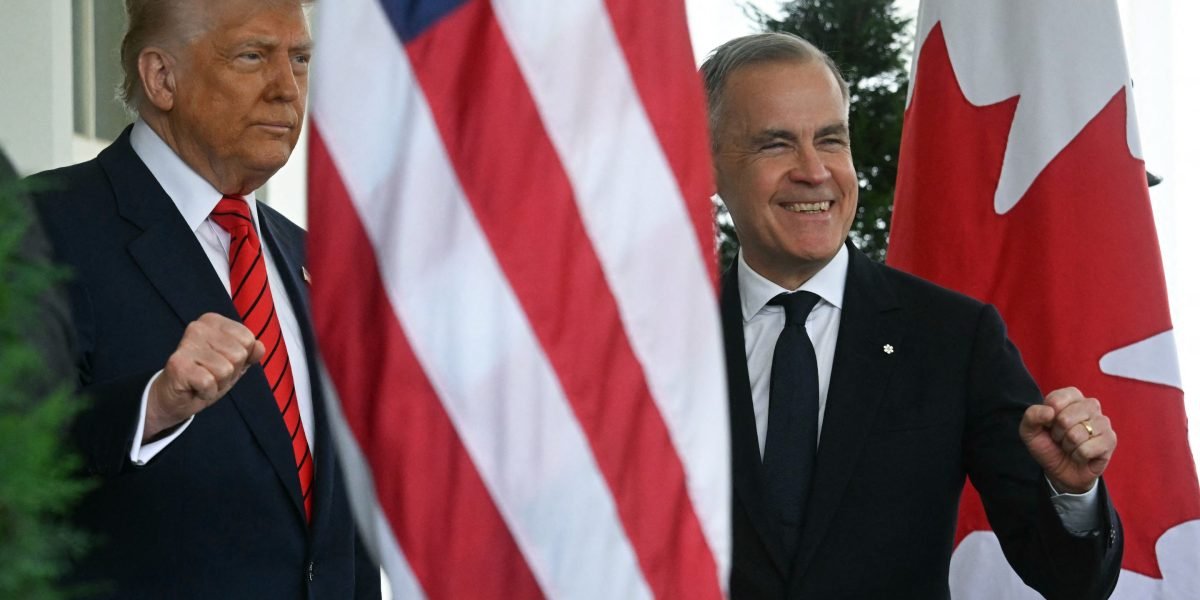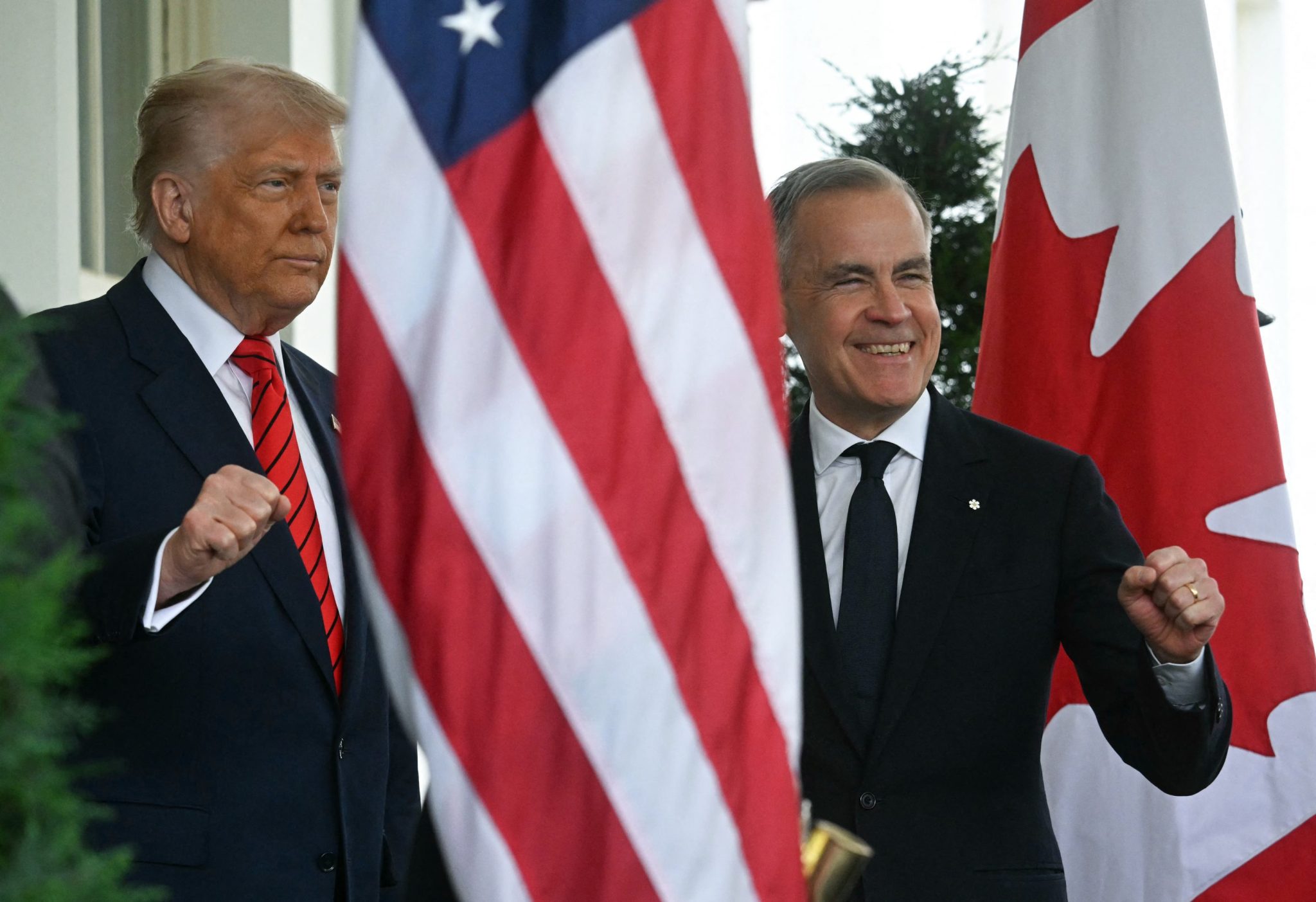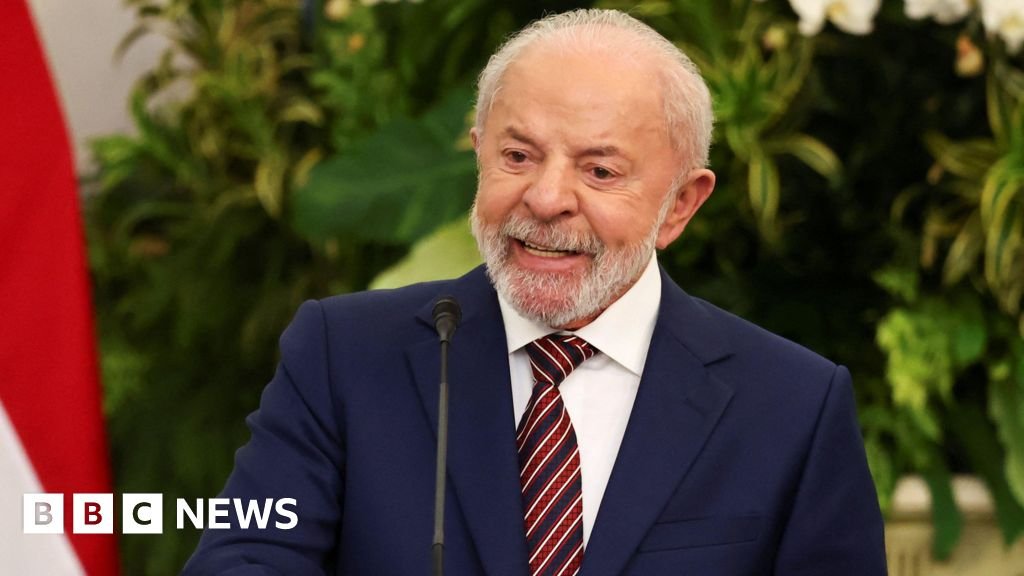
Trump shutting down trade talks with Canada could give Beijing another advantage

President Trump ended trade talks with Canada over an anti-tariff ad featuring Ronald Reagan. If Canadian Prime Minister Mark Carney has any frustrations he wants to share about his southern neighbour, he may be able to do so with Chinese President Xi Jinping as soon as next week.
Hours ago, Trump wrote on his social networking site Truth Social that “all trade negotiations with Canada hereby end.” His anger was prompted by a Canadian television ad featuring President Reagan — a legend among conservatives — saying that tariffs and trade barriers “harm every American worker and consumer.”
While President Trump He claimed the ad was ‘fake’The Ronald Reagan Presidential Foundation said the ad “distorts” President Reagan’s 1987 radio speech on free trade.
But before the talks between Ottawa and Washington collapsed, Canadian officials said in a press conference Background briefing Carney seeks to establish a “strategic relationship” with China – America’s main opponent on the global economic arena, and its strongest opponent in the tariff war.
The officials said Carney hopes to meet with the Chinese premier at the Asia-Pacific Economic Cooperation summit in Gyeongju, South Korea, although nothing has been confirmed. The Canadian leader and former Bank of England governor is keen to talk with leaders from across the geopolitical spectrum, but will be clear about areas where Canada and China cannot cooperate, aides added.
While Canada is naturally free to pursue a relationship with the world’s second-largest economy, it provides Beijing with another enthusiastic partner as it navigates a new relationship with America.
So far, Beijing’s response to President Trump’s tariff plans has been to come to the negotiating table while also diversifying its trading partners.
According to data released by the General Administration of Customs earlier this month, China’s shipments to the United States fell by 27% in September, the sixth month of more than 10% decline for its most valuable customers. At the same time, it charted strong growth in regions such as the European Union (which currently operates under a 15% tariff rate from the White House), resulting in exports to non-US countries growing by 14.8%.
The shift away from the US means exports actually rose 8.3% in September from a year ago, reaching $328.6 billion, their highest total for 2025 so far.
This development comes days before the scheduled meeting between President Trump and President Xi, and the pair are also scheduled to meet at the South Korea summit. This comes after a volatile speech from the White House, and Trump’s threat to impose a 100% tariff on China next November.
The Ministry of Commerce in Beijing maintained its firm response to the threat He said“Threatening to repeatedly impose high tariffs is not the right approach to dealing with China. China’s position on the tariff war is consistent: we do not want war, but we are not afraid of it.”
Trump quickly reversed course, saying he did not want to “hurt” the Chinese economy and adding that he had a good relationship with President Xi. It is also worth noting that in addition to limiting American influence by experimenting with its export markets, China maintains… Crackdown on rare earth metals That the United States does not have.
Impact
Economists are largely unconcerned with the shift in tone between the United States and Canada. As Paul Donovan of UBS told clients this morning: “This has happened before, but the previous threats were related to specific Canadian government policies. This time the motivation appears to be political announcements…which may indicate that a solution is more difficult to reach. There is no political action that can be undone to reset the situation.”
“However, financial markets are likely to be muted in their reaction, for now. Trade negotiations do not cover all or even most trade between Canada and the United States.”
He added: “Despite the greater difficulties in engineering a US retreat this time, past experience suggests that this type of issue will be resolved before long.”
Markets are more concerned about the repercussions of the Xi-Trump meeting. “Growing uncertainty or hostility in China-US trade relations could have more serious economic consequences,” Donovan added.
Jim Reed Deutsche Bank He told clients this morning that confirmation of the meeting “raised hopes for a detente between the world’s two largest economies. This will be the first in-person meeting between the two leaders since Trump returned to office in January, and comes as the current 90-day US-China tariff truce is set to end on November 10.”













Post Comment